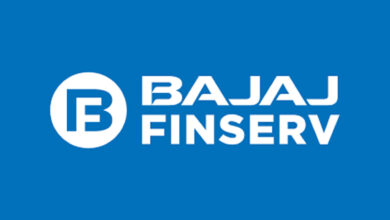Understanding Cash Value Life Insurance: A Simple Guide

Cash value life insurance is an important type of insurance that many people might not know about. With cash value life insurance, you not only get protection for your loved ones, but you also build savings over time. This savings part is called cash value.
When you pay your premiums, some of that money goes into a savings account. You can use this cash value for different things, like taking a loan or paying your premiums. It’s a great way to have both life insurance and a little extra savings at the same time!
What is Cash Value Life Insurance
Cash value life insurance is a special type of life insurance that lasts for your whole life. This means that as long as you keep paying your premiums, your policy stays active. Unlike term life insurance, which only covers you for a specific time, this insurance is permanent.
One cool feature of cash value life insurance is that it has a savings part. Each time you pay your premiums, a portion goes into a savings account. This savings grows over time, and you can use it for different things later on.
People choose this type of insurance because it not only protects their loved ones but also helps them save money. If you ever need cash, you can borrow from this savings account. This makes it a great option for many families.
How Does Cash Value Life Insurance Work
Cash value life insurance works by combining protection with savings. When you buy a policy, you agree to pay premiums. A part of this money goes to your insurance coverage, while the other part goes into the cash value savings.
Over the years, the cash value grows, usually at a set interest rate. This means that as time goes by, you have more money saved up. If you ever face a financial need, you can tap into this cash value.
The more years you pay premiums, the more cash value you build. This makes it a long-term investment. It’s important to remember that if you take out money, your death benefit might be smaller.
Benefits of Cash Value Life Insurance
There are many benefits to having cash value life insurance. One big advantage is that it provides lifelong protection. This means your family will receive money if something happens to you, no matter when it occurs.
Another benefit is the cash value that grows over time. This money can be used for emergencies, big purchases, or even to help pay for college. Having this savings can give you peace of mind, knowing you have a safety net.
Lastly, cash value life insurance can offer tax advantages. When you take out money from the cash value, it is often not taxed. This can help you keep more of your savings for yourself and your family.
Cash Value vs. Term Life Insurance: What’s the Difference
When looking at life insurance, it’s important to understand the difference between cash value and term life insurance. Term life insurance is usually cheaper but only lasts for a certain period. After that period ends, the coverage stops.
In contrast, cash value life insurance lasts your whole life. You can also build savings with it. This makes it more expensive, but it provides benefits that term life does not.
Choosing between these two types depends on your needs. If you want lifelong coverage and savings, cash value life insurance is a good choice. But if you only need temporary coverage, term life might be better for you.
How to Build Cash Value in Your Policy
Building cash value in your policy is easy but requires time. Each time you pay your premiums, some of that money goes into your savings account. The longer you have the policy, the more cash value you will accumulate.
Many policies also earn interest. This means that your cash value can grow even faster. Some companies offer a fixed interest rate, while others may give you a variable rate. It’s good to check what your policy offers.
Additionally, you can increase your cash value by making extra payments. If you can afford it, putting more money into your policy helps you build savings quicker. Just remember to keep your premiums paid to keep the policy active!
Borrowing Against Your Cash Value Life Insurance
You can borrow money against your cash value life insurance if you need funds. This is a unique feature of this type of insurance. When you take out a loan, you are using your own money that you saved in the policy.
The great part is that you don’t need to go through a bank. You can usually get the money quickly and easily. However, it’s important to know that if you don’t pay back the loan, the amount will be taken from your death benefit.
Always think carefully before borrowing. If you take out too much money, it might affect your family’s financial security later. Borrowing should be done wisely to make sure you still have enough coverage.
Withdrawing Cash from Your Policy: What to Know
Withdrawing cash from your policy is another way to access your savings. If you find yourself in need of money, this option is available. However, when you withdraw cash, it will reduce the total death benefit your family would get.
You can usually take out some of the cash value without any penalties. This makes it a useful option in emergencies. It’s also a good way to use your savings for things like home repairs or paying off debts.
Before you make a withdrawal, check how much it will affect your death benefit. It’s important to stay informed about how your policy works, so you can make the best choices for your future.
The Costs of Cash Value Life Insurance
Cash value life insurance can be more expensive than other types of insurance. The reason for this is that you are paying for both coverage and savings. Your premiums will usually be higher compared to term life insurance.
It’s essential to understand these costs before buying a policy. Make sure to look at your budget and see if you can afford the premiums. If not, it might not be the right choice for you.
Additionally, keep in mind that fees may also be involved. Some policies have administration fees that can reduce your cash value. Always read the fine print so you know what you are getting into.
Who Should Consider Cash Value Life Insurance
Cash value life insurance is great for certain people. If you want lifelong protection for your family, this might be the right choice. It’s also suitable for those who want to build savings at the same time.
This insurance is beneficial for people who have a long-term financial plan. If you are thinking about retirement or saving for your children’s education, cash value life insurance can help.
Lastly, if you want more flexibility with your money, this insurance is a good option. You can borrow or withdraw cash when you need it. Just make sure you understand how it works before making a decision.
Real-Life Examples of Cash Value Life Insurance
To understand cash value life insurance better, let’s look at some examples. Imagine a family buys a cash value policy when their child is born. Over the years, they pay premiums, and the cash value grows.
When the child goes to college, the parents can withdraw some cash to help pay for tuition. This shows how the savings part can be used for important life events.
Another example is a person who has a policy for many years. If they face an unexpected expense, they can borrow against their cash value instead of taking a bank loan. This helps them manage their money better during tough times.
Common Myths About Cash Value Life Insurance
There are many myths about cash value life insurance that can confuse people. One common myth is that it’s only for wealthy individuals. In reality, many families can benefit from this insurance, regardless of their income.
Another myth is that you lose all your money if you stop paying premiums. While it’s true you may lose some benefits, you can still keep the cash value you built up. This is a misconception that needs to be clarified.
Lastly, some believe this type of insurance is too complicated. While it can seem overwhelming, understanding the basics makes it easier. With a little research, anyone can learn how cash value life insurance works.
Conclusion
In conclusion, cash value life insurance offers many benefits, but it’s not for everyone. It provides lifelong coverage and a savings option. However, it can be more expensive than other types of life insurance.
Before deciding, think about your financial situation and goals. If you want lifelong protection and savings, this type of policy could be a great choice. But if you only need coverage for a short time, term life insurance might be better.
Always take the time to research and ask questions. Understanding your options is the key to making the right choice for you and your family.



